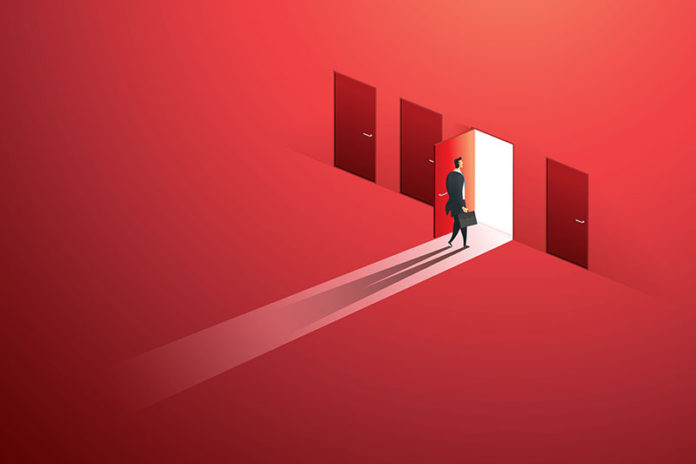Two issues have long been the center of America’s culture wars: guns and abortion, with red states and blue states generally pursuing starkly divergent policies on each. It’s not surprising to find that some politicians have used the coronavirus crisis to advance policies they couldn’t achieve before. But in this, Illinois is a notable exception.
The public health crisis has caused governors to close some businesses and other venues as part of stay-at-home edicts meant to slow the spread of the disease. But the disease presents an opportunity for some to punish those they don’t like while protecting those they do.
In blue states, the target has been guns. New York Gov. Andrew Cuomo, a Democrat, classified stores that sell firearms as “non-essential,” requiring them to close down. So did Massachusetts Gov. Charlie Baker, a Republican.
Democratic governors in Pennsylvania and New Jersey did the same initially but soon reversed course. Rhode Island’s Democratic Gov. Gina Raimondo closed shooting ranges but eventually agreed to let them open under restrictions.
Red states, by contrast, chose to pursue their goal of banning all or most abortions. Among the states that have restricted abortion as part of their coronavirus plans are Ohio, Arkansas, Mississippi, Alabama, Tennessee and Oklahoma. Texas did the same before eventually allowing abortions to resume.
The motives, across the board, are suspicious. You can make the argument that gun stores can bring contagious people into contact with others. But so do hardware stores, which were kept open. Massachusetts State Rep. Marjorie Decker gave away the game when she said the shutdown came at “a time when we need to be concerned about issues of suicide and domestic violence.”
Mississippi’s Republican Gov. Tate Reeves claimed halting abortions would conserve personal protective equipment used by medical personnel. But he also declared, “We’re doing everything in our power, and have for many years, to make Mississippi the safest place in America for unborn children.”
In these instances, the coronavirus is more an excuse than a reason. Any value the bans might have in keeping people from spreading the virus pale next to the importance of what they force people to give up. You could treat firearms and abortions as nonessential only if you never really needed one.
The Supreme Court, however, has granted constitutional protection to both the right to own firearms and the right to terminate a pregnancy. In each realm, it recognized that a fundamental liberty was at stake.
That remains the case even in a pandemic. If you worry that the economic collapse of recent weeks will generate crime or unrest, it would be no comfort that you will be able to acquire the means to defend your home weeks or months from now. If you feel that continuing a pregnancy would jeopardize your health or your future, you don’t have the option of getting the abortion after the pandemic is over.
Unlike haircuts or manicures, a gun sale can take place with both parties keeping their distance, largely eliminating the danger of transmission. In the case of banning abortion, the public health rationale is not only dishonest but factually wrong. A hospital childbirth is far more dangerous, and requires far more medical personnel and resources, than an abortion.
Illinois, I’m glad to say, is respecting both rights. Democratic Gov. J.B. Pritzker has upheld women’s reproductive freedom, signing a measure that would permit abortion even if the Supreme Court overturns its 1973 Roe v. Wade decision. During the pandemic, abortion clinics have remained open.
On gun control, he’s called for a federal ban on “assault weapons” and high-capacity magazines, and he signed a bill requiring firearm dealers to get state certification. But his stay-at-home order allowed gun shops and shooting ranges to keep doing business.
That decision won praise in unusual quarters. “When an anti-gun Democrat governor declares that essential businesses include firearm and ammunition suppliers and retailers for the purposes of safety and security, that is a really big deal,” said Alan M. Gottlieb, executive vice president of the Second Amendment Foundation. “Every governor should copy the Illinois example when issuing ‘shelter-in-place’ and business closure orders in the face of the Coronavirus.”
Pritzker has shown he can respond to the challenges of the coronavirus outbreak while putting aside his own political agenda. Why can’t every governor do the same?































